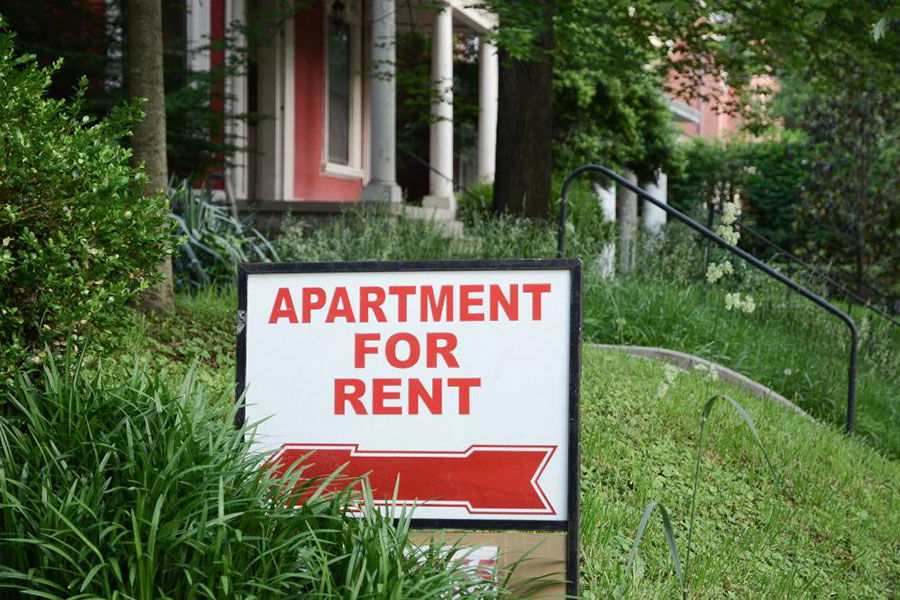Selling your house is often one of the largest financial transactions you’ll make in your life. It can be complex and emotionally challenging, especially if it’s your first time dealing with a home sale or if the house is full of family memories.
Despite these challenges, millions of people successfully sell their homes each year. The process is well-trodden, but each sale has its unique circumstances and can come with many curveballs.

Whether you’re downsizing, upgrading, relocating, or just ready for a change, selling your house is a big step. The task might seem daunting, but remember, you’re not alone. Many resources can guide you through this process, providing advice and support along the way.
This guide aims to simplify the process and provide you with step-by-step instructions to help sell your house.
From setting your objectives to finally handing over the keys, we’ll walk you through each stage. We will address common challenges and offer expert insights to ensure you’re well-prepared for the journey ahead. Our goal is to help you sell your house at the best possible price within your desired timeline, while minimizing stress and maximizing satisfaction.
Key Takeaways
- Preparing your home with repairs and staging, combined with accurate pricing, can attract more buyers and secure better offers.
- Collaborating with a knowledgeable real estate agent streamlines the process, from market analysis to negotiation and closing.
- Post-sale, keep comprehensive records and understand the tax implications of the transaction to aid future financial planning.
Define Your Goals for Selling
The first step in any successful real estate transaction is understanding your motivations and objectives for selling. Be clear about your goals and timeline to create a selling strategy that will get you the price you want for your home within the timeframe desired.
Why are you selling?
Your motivations for selling might be tied to lifestyle changes, financial circumstances, or relocation for work. Perhaps you’ve outgrown your current house, or maybe it’s become too big after the kids have moved out. You might need to relocate for a new job or prefer a change in scenery as you approach retirement. By identifying your reasons for selling, you’ll have a clearer idea of what you want to achieve with the sale.
What’s your timeline?
Your timeline can significantly influence your selling strategy. If you’re in a rush due to reasons like a job relocation or closing on another home, you may have to price your property more competitively to attract a faster sale. However, if you have the luxury of time, you can afford to be patient and wait for an offer that matches your ideal price.
Evaluate Your Financial Position
Assessing your financial situation is essential in the home-selling process. A realistic view of your finances will help you make informed decisions, particularly in setting a reasonable asking price.
Calculate Your Home Equity
Equity refers to the portion of your property that you truly “own” – it’s the difference between the current market value of your home and the remaining balance on your mortgage. Knowing your equity can give you an idea of your potential profits from the sale.
Consider Your Outstanding Mortgage
The amount left on your mortgage is another critical factor. If your outstanding balance is more than your home’s sale price, you may need to consider a short sale, which requires your lender’s approval and can affect your credit score.
Estimate Closing Costs
Closing costs are the fees and expenses you pay to finalize your home’s sale, excluding the commission for the real estate agent. They may include title insurance, appraisal fees, and attorney fees, among other costs. These are usually about 2-5% of the purchase price. Accounting for these costs ensures you have a clear picture of your net proceeds from the sale.
Clarifying your selling objectives and reviewing your financial position will pave the way for a more streamlined and successful home-selling experience. These factors are not just critical for setting a realistic asking price but also for aligning your home sale with your larger financial or life goals.
Prepare Your House for Sale
Once you’ve identified your selling objectives, the next step is to prepare your house for the market. A well-prepared home can catch the attention of more prospective buyers and even command a higher sale price.
Home Improvements and Necessary Repairs
Before you list your home, assess its overall condition. Some minor upgrades and necessary repairs can significantly enhance your home’s appeal, often leading to a faster sale or higher selling price.
Improving your home’s curb appeal is particularly important, as it creates the first impression potential buyers have when they see your property. Simple steps like landscaping, painting the front door, and maintaining the lawn can make a big difference.
Deep Cleaning and Carpet Cleaning
Begin with a deep clean to ensure your home looks its best. Pay attention to often-overlooked areas, such as baseboards, window sills, and ceiling fans. If you have carpets, consider hiring a professional carpet cleaning service to remove any stains or odors. Cleanliness can significantly influence a buyer’s first impression.
Minor Upgrades and Fixes
Next, tackle minor upgrades and repairs that could deter potential buyers. This could include painting walls with a fresh, neutral color, fixing any plumbing or electrical issues, and ensuring all appliances are in working order. Although these tasks may seem small, they can make a big difference to potential buyers.
Stage Your House
Staging your house involves preparing it for viewing by potential buyers. It can significantly impact how quickly your home sells and the price.
Hire a Professional Stager
A professional stager, although an extra cost, can be a worthwhile investment. For a few hundred dollars, they can transform your space and make it appealing to as many potential buyers as possible. They use strategies like optimal furniture placement, accentuating natural light, and choosing neutral decor to make your home attractive and inviting.
Depersonalize Your Home
Part of effective staging involves depersonalizing your home. This means removing personal items like family photos, collections, and mementos. The aim is to create a neutral space where potential buyers can easily envision themselves and their own belongings. It’s all about helping buyers picture your house as their future home.
In the competitive real estate market, first impressions count. By investing time, money and effort in staging your house for sale, you can stand out from the competition and make a great impression on prospective buyers. These preparations could translate into a quicker sale and potentially a higher price.
Set the Right Price
One of the most critical decisions in the home-selling process is determining the right asking price. Setting a competitive price can help attract more prospective buyers, shorten the time your home spends on the market, and potentially yield a higher sale price.
The Importance of Pricing Correctly
Choosing the right price isn’t just about the amount you’d like to receive. It also involves analyzing buyer behavior and local market trends. Pricing your home correctly can result in more interest, more showings, and ultimately, more offers.
Get a Comparative Market Analysis
A key tool for setting the right price is a Comparative Market Analysis (CMA). A CMA provides information about homes in your area that have recently sold, adjusted for differences in features and conditions, giving you a good idea of what buyers might be willing to pay for your home. This helps ensure your home is priced at its fair market value, making it attractive to potential buyers.
Hire a Great Real Estate Agent
An experienced agent can provide an accurate and comprehensive CMA. They have the experience and local market knowledge to determine which homes are truly comparable to yours and how various features and upgrades impact pricing.
Consider Comparable Sales
Comparable sales, or “comps,” are recent home sales in your area that are similar to your property in size, condition, and features. Your agent will look at these comparable homes, adjust for differences, and use the information to guide you towards a fair and attractive list price.
Adjust for Features and Conditions
Every home is unique, and its features and condition will impact its value. Your real estate agent will consider these factors when setting your home’s list price. For example, if your home has a new roof or a remodeled kitchen, it might command a higher price compared to a similar home without these upgrades.
Setting the right price is both an art and a science. It requires an understanding of the local real estate market, an evaluation of comparable sales, and an assessment of your home’s unique features.
Market Your House
Once your house is ready for sale and priced right, the next step is to get the word out to prospective buyers. Effective marketing can attract more interest and lead to quicker, more competitive offers.
Use High-Quality Professional Photos
Professional photography is an important role in marketing your house. High-quality photos can showcase your home’s best features and create a good first impression. Homes listed with professional photos tend to receive more views online, which can lead to faster sales and often at higher prices.
Craft a Compelling Listing Description
A well-written listing description can spark interest and invite potential buyers to learn more. Highlight your home’s unique features, recent upgrades, and what makes it special. Remember, you’re not just selling a property, you’re selling a lifestyle. Allow your real estate agent to offer feedback and help you create an enticing, optimized listing that will also show up in search results when people are looking for a home like yours.
Host Open Houses and Private Showings
Open houses and private showings are opportunities for potential buyers to experience your home in person. Be flexible with your schedule and make your house available for viewing as often as you can. The more people who walk through your door, the better your chances of receiving an offer.
Tips for a Successful Open House
To maximize the impact of your open house, ensure your home is clean, well-lit, and staged to appeal to a broad audience. Provide informative brochures with details about the property and the neighborhood. Also, consider offering refreshments to create a welcoming atmosphere. A well-executed open house can generate interest and potentially lead to multiple offers.
The Role of a Good Real Estate Agent in Marketing
Marketing a house involves a significant time commitment and a specific set of skills. This is where a good real estate agent comes into play.
Leverage the Multiple Listing Service (MLS)
A good agent can list your property on the Multiple Listing Service (MLS), a database of homes for sale that’s used by real estate professionals. An MLS listing can increase your home’s visibility, attracting other real estate agents and their clients.
Find a Realtor with A Proven Track Record
Choose a local real estate agent with a proven track record of sales in your area. Their experience and local market knowledge can be invaluable in promoting your home effectively and attracting serious buyers.
In a crowded real estate market, standing out is key. By leveraging professional photography and crafting a compelling listing description, you can market your home effectively, attracting more potential buyers and increasing your chances of a successful sale.
Evaluate Offers and Negotiate
Once your marketing efforts start paying off and offers begin to come in, it’s time to shift focus to negotiation. The goal here is to achieve the best possible terms that align with your selling objectives.
How to Evaluate Offers
When you receive an offer, it’s essential to look beyond the offered price. While the highest offer might seem the most appealing, it’s not always the best choice.
- Review the buyer’s financing: Knowing where the buyer’s financing comes from can provide insight into the strength of their offer. Offers from pre-approved buyers backed by a well-known lender often carry less risk than offers from buyers without pre-approval or with lesser-known lenders.
- Consider the down payment: A larger down payment can indicate financial stability and seriousness about the purchase.
- Assess the buyer’s timeline: A buyer with a timeline that aligns with yours may be more appealing, even if their offer isn’t the highest. For example, someone who can close quickly might be a better fit if you’re in a hurry to sell.
How to Manage Multiple Offers
Receiving multiple offers is exciting but can also feel overwhelming. Your real estate agent can help simplify this process.
- Consult with your real estate agent: An experienced agent can guide you through comparing offers, explaining contingencies, and helping you decide which option best suits your needs.
- Prioritize your goals: If selling quickly is a priority, you might choose a buyer who can close faster, even if their offer is slightly lower. On the other hand, if maximizing profit is your goal, you may want to hold out for the highest bid.
Negotiating and evaluating offers is about more than just price. It involves reviewing all aspects of the proposal and choosing what aligns best with your financial and personal objectives.
Close the Sale
After you’ve accepted an offer, the next step is to finalize the transaction. The closing process involves several stages, including a home inspection, title search, potential repair negotiations, and final paperwork signing. Here’s what to expect:
The Due Diligence Period
The due diligence period allows the buyer to further investigate the property after their offer has been accepted. During this time, the buyer’s agent will arrange for a home inspection.
Home Inspection and Report
A professional home inspector will thoroughly examine your property and generate an inspection report. This document details the condition of the house and outlines any potential issues, from minor maintenance concerns to significant structural problems.
Negotiating Repairs
If the inspection report reveals necessary repairs, there may be further negotiations. Buyers might ask you to handle the repairs, reduce the sale price, or offer a credit at closing to cover the repair costs.
Title Search and Insurance
A title search ensures there are no liens or claims on the property and confirms you have a clear title to transfer. Title insurance may also be part of the closing costs, protecting the buyer and lender against future disputes or claims.
Sign the Final Paperwork
The last step in the home sale process is the closing meeting. Here, you’ll sign the final paperwork, which includes key documents such as:
- The bill of dale: This document transfers the ownership of personal property (like appliances or furniture) included in the home sale.
- The deed: This legal document transfers ownership of the property from you, the seller, to the buyer.
- Documents prepared by a real estate attorney or real estate brokerage: The closing process involves many legal documents. These might be prepared by a real estate attorney or real estate brokerage to ensure everything is in order.
Completing the closing process requires attention to detail but brings you one step closer to successfully selling your home.
Post Sale Considerations
Even after the final paperwork has been signed, and the new owners have the keys, there are a few additional factors to consider. The sale of your house doesn’t just end at the closing table. Let’s take a closer look at these post-sale considerations.
Tax Implications
Selling your house can have significant tax implications. The application of taxes largely depends on the profit you make from the sale and how long you’ve lived in the house.
If the house was your primary residence for at least two of the last five years before selling, you might qualify for a capital gains tax exemption. This can significantly reduce your tax liability.
However, tax laws can be complex, and every situation is unique. Contact a tax professional or a certified public accountant to fully understand the potential tax impacts. They can provide guidance tailored to your specific circumstances.
The Move to Your New Home
Moving to your new home involves logistical and financial considerations. Plan ahead for moving costs, including professional movers, moving supplies, and potential temporary housing.
Keep Records of Your Home Sale Expenses
It’s wise to keep a comprehensive record of all home sale-related expenses. This includes real estate agent commissions, home improvements made before the sale, and any fees or costs associated with closing. You may need these records for your future tax returns or financial planning.
Some of your moving costs may be tax-deductible if you or a member of your household is in the military, and you are moving due to a military order. Previously, moving costs were tax-deductible for many people who were relocating due to a job. After 2025, these deductions may return.
Conclusion
Selling your house is a significant event, and educating consumers about the process can reduce stress and result in a better outcome. By preparing your home, pricing it right, and working with a competent real estate agent, you can complete the transaction smoothly and efficiently.
The selling process might seem overwhelming, but with thorough preparation and the right team on your side, it can be an exciting time. Remember, every house can sell, it just requires the right strategy, a competitive price, and a bit of patience.
Frequently Asked Questions
Is now a good time to sell?
Yes, now can be a great time to sell your home. In the US, many industries, including real estate, are experiencing inventory shortages. This means there are fewer homes available to meet the high demand from buyers. This often leads to competitive bidding, where multiple offers can drive up the price of your home.
Traditionally, spring is considered the best time to put your house on the market. During this season, there tends to be more buyer activity, which can increase your chances of selling quickly and at a good price. Summer can see a slight dip in buyers, as many people are on vacation. Similarly, winter can be slower due to the holiday season.
What should I do if my house isn’t selling?
If your house isn’t attracting buyers, various factors could be at play. The asking price may be too high, marketing efforts might be insufficient, or the house’s condition could be deterring potential buyers. Talk to your real estate agent to pinpoint potential problems and devise solutions. You may need to reduce the price, enhance your marketing strategy, or invest in necessary home improvements.
Can I sell my house myself instead of using a real estate agent?
Yes, selling your house yourself is an option. This is known as “For Sale By Owner” (FSBO). However, selling a house involves complex tasks like pricing, marketing, negotiating, and handling legal paperwork. Real estate agents possess the expertise and experience to deal with these challenges. If you opt for FSBO, be prepared for a significant time commitment and be ready to handle these tasks yourself.
How long does it usually take to sell a house?
The timeline for selling a house can vary greatly and depends on numerous factors, such as local market conditions, the home’s condition and price, and even the time of year. On average, it can take anywhere from a few days to a few months. Your real estate agent can give you a better estimate based on local trends and your specific situation.
What is a seller’s market, and how can it impact my home sale?
A seller’s market occurs when the demand for homes exceeds the current supply. This often results in homes selling more quickly and at higher prices. If you’re selling your house in a seller’s market, it can be an advantage as you may get multiple offers and a higher sale price.



